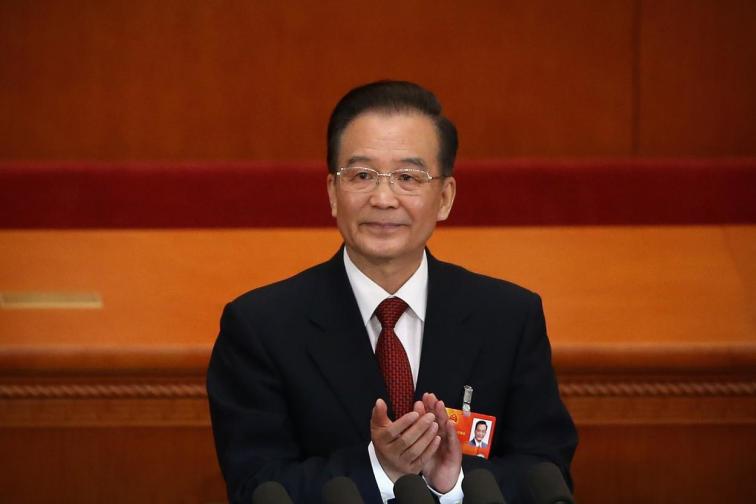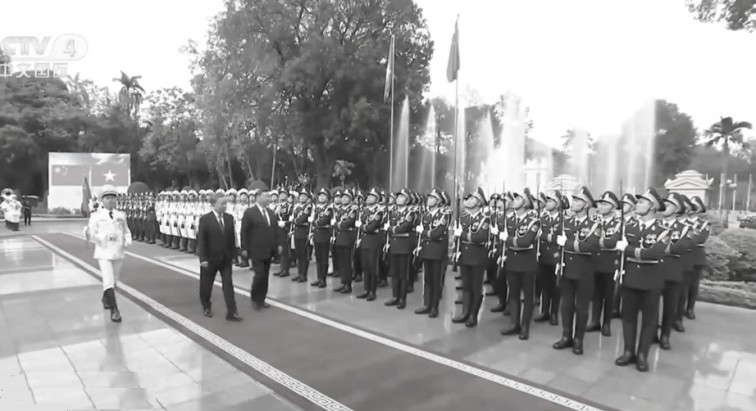Composite image: Hu Chunhua and Wang Yang are rumored to become successors.
[People News] There are rumours that Xi Jinping is losing power, with Zhongnanhai now under the control of veterans like Hu Jintao and Wen Jiabao, along with the current Vice Chairman of the Central Military Commission, Zhang Youxia. It is said that the Communist Party plans to hold a so-called democratic election at the Fourth Plenary Session, with candidates for General Secretary being Wang Yang, Hu Chunhua, and Ding Xuexiang, and a non-competitive election will be adopted to select the General Secretary.
Recently, various versions of rumours regarding the successor have surfaced. Concerning the news of the competition for General Secretary among Wang Yang, Hu Chunhua, and Ding Xuexiang, overseas commentator 'Xiao Shuo Jia' suggests that this could either be a trial balloon or simply misinformation. He analyses:
Firstly, the Communist Party cannot conduct a democratic election for General Secretary, as this would contradict the Party's established organisational principles. Such a move would essentially signal to the outside world that the political rules of the Communist Party have been completely rewritten. He points out that since the establishment of the Communist Party, democratic elections have always been a formality, with the Politburo, Standing Committee, and General Secretary being predetermined through factional negotiations, and the plenary session merely serving as a formality to rubber-stamp decisions. Additionally, democratic elections imply debates, vote canvassing, and popularity contests, which the Party would never allow the three candidates to engage in public debate.
Secondly, Zhang Youxia is unlikely to agree. At present, Zhang Youxia is the most powerful and influential figure within the party. He has effectively taken control of the military and has become its central leader. With a military background, Zhang Youxia emphasises discipline and control, and his primary concern is uncertainty. For him, democratic elections represent the highest level of uncertainty and risk. There is no telling whether a General Secretary who does not heed the military's advice might be elected. For instance, Ding Xuexiang, who has a close relationship with Xi Jinping, is a potential candidate. Zhang Youxia hopes that the next General Secretary will have a strong understanding of the military to safeguard the interests and demands of the armed forces. Currently, the military's most pressing demand is to hold Xi Jinping accountable. Zhang Youxia is a natural ally of the Youth League faction and could accept Wang Yang as the designated successor, or alternatively, he might settle for Hu Chunhua. However, he will absolutely not accept democratic elections.
Thirdly, the candidate for General Secretary has long been predetermined to be Wang Yang. According to analysis from 'Xiaoshuojia', the anti-Xi faction is also conducting internal assessments to gauge the acceptance of Wang Yang, Hu Chunhua, and Ding Xuexiang among party members, society, and the military. This is a typical tactic of the CCP: they first release information to observe reactions and then proceed methodically with their plans.
'Xiaoshuojia' has disclosed that, based on all the information compiled from current leak channels, Wang Yang has already garnered overwhelming support from the majority of high-ranking officials. Xi Jinping has also accepted Wang Yang as his successor and has rejected Hu Chunhua. The promotion of Ding Xuexiang is merely a diversion to create a façade of democracy.
An article published on NEWTALK asserts that in China, "the Communist Party equals the state." While elections do exist, their significance is minimal. For the Communist Party, the aim of electoral reform is to bolster the legitimacy of its governance and to ensure political stability through the electoral process.
Recently, leaked information has surfaced regarding a new list of seven members of the Standing Committee. Veteran leaders, including Wen Jiabao, have reportedly designated Wang Yang to succeed as General Secretary, Hu Chunhua to take over as Premier, and Zhang Youxia to serve as Chairman of the Military Commission and join the Standing Committee. The remaining four positions will be filled through a competitive election among the following seven candidates: Ding Xuexiang, Yin Li, Li Shulei, Zhang Guoqing, Chen Jining, Yuan Jiajun, and Zhang Qingwei.
As for Xi Jinping's chances of making a comeback, observers are largely pessimistic. Insiders suggest that Xi currently faces two potential outcomes: he may opt for a "dignified exit" citing health issues, transitioning into a silent "retired elder" role; or he may "naturally disappear" one day, with the party discreetly issuing an obituary stating he "passed away due to illness." Whichever scenario unfolds, both signify the official end of the Xi era.
(People News was the first to publish this.)










News magazine bootstrap themes!
I like this themes, fast loading and look profesional
Thank you Carlos!
You're welcome!
Please support me with give positive rating!
Yes Sure!